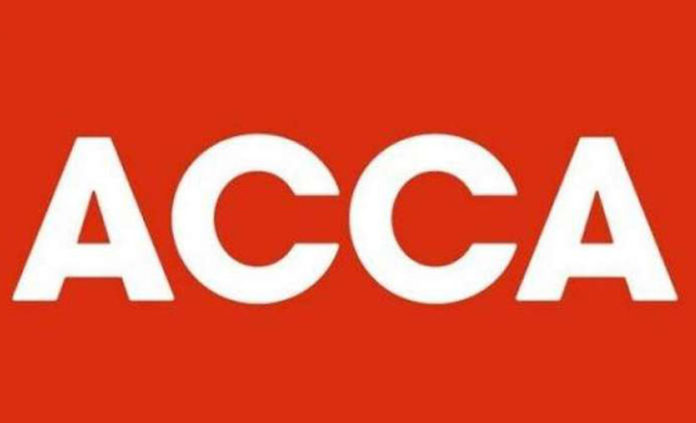Business & tax experts examine Punjab’s Budget 20-21, share future-focused recommendations
Leading representatives from the business community, professional bodies and government sat together at a high-level virtual post-budget seminar themed ‘Economic Impact, Harmonisation and Future Orientation’ to examine the Punjab’s provincial Budget 2020-21 and identified economic opportunities and shared forward-thinking recommendations.
The online seminar was organised by ACCA (the Association of Chartered Certified Accountants) with representatives from Lahore Tax Bar Association (LTBA), Punjab Revenue Authority (PRA), Institute of Cost Management Accountants of Pakistan (ICMA Pakistan), and Lahore Chamber of Commerce & Industry (LCCI).
Secretary Finance Punjab, Muhammad Abdullah Khan Sumbal, was the Chief Guest at the event who shared the government’s perspective and answered the concerns shared by the business community and tax professionals during a one-on-one question and answer session.
The seminar also included a highly interactive, future-focused panel conversation moderated by the Member of ACCA’s Global Tax Forum, and the Chair ACCA MNP & Tax Committee, Omer Zaheer Meer FCCA, featuring contributions from following senior Conversation Leaders: Javed Ahmed, Tax Economist, Punjab Revenue Authority (PRA), Kashif Anwar, Chairman – Standing Committee on Taxation, Lahore Chamber of Commerce & Industry (LCCI), Khurram Shahbaz Butt, President, Lahore Tax Bar Association (LTBA), Sajjeed Aslam, Head of ACCA Pakistan, and Zia-Ul-Mustafa, President, ICMA Pakistan.
Emphasising on the need for the harmonisation of federal, provincial taxes, ACCA’s head of Pakistan, Sajjeed Aslam stressed,
‘To make it easy for the services sector to keep creating job opportunities for the country’s youth and attract foreign direct investment, there’s an urgent need for policy makers to truly understand the real needs of this sector and provinces need to introduce a mechanism to facilitate the adjustment of tax refunds and bring harmonisation in tax rates across all provinces.’
In his address, Muhammad Abdullah Khan Sumbal, Secretary Finance Punjab, shared,
‘Despite the fact that working in the IMF regime remains challenging that requires significant revenue generation and expenditure management, the Punjab’s budget 2020-21 is business-friendly and forward-thinking and contains inputs from all major stakeholders. The provincial government is determined to support the private sector to enable them to create new jobs, and consistent with Federal government’s efforts, we’re heavily facilitating the construction sector. Considerable efforts are being made to ensure ease of doing business in Punjab. We’re the first province to give zero rating to Public Private Partnerships showing our desire to support the private sector. We’re working towards broadening of sales tax base and actively engaging with federal and provincial counterparts to ensure harmonisation and cooperation.’
The Finance Secretary also shared that the government feels Human Development (HD) is a more effective indicator compared to Economic Growth (EG), therefore social development projects to remain its priority with major investments in education and health.
He also shared his hope that the tax harmonisation issue will be resolved within the first quarter of the current FY and we can expect reaching some level of consensus between federation and provinces to devise a workable framework accommodating different views.
Javed Ahmed shared that PRA is moving with pace toward digitisation to facilitate taxpayers and is committedly working to remove impediments.
The President of LTBA, Khurram Shahbaz questioned the introduction of regressive measures like attaching credit facilities and encouraged government to actively engage with professionals to ensure progressive legislations.
Representing the business community, Kashif Anwar shared the difficulties that businesses are facing and recommended business-friendly initiatives with focus on providing more value to taxpayers.
Attendees appreciated the role of ACCA in super-connecting all the stakeholders and facilitating an action-oriented conversation to support policy makers to directly engage with the business community and create a conducive environment for commercial activity and corporate sector innovation.






